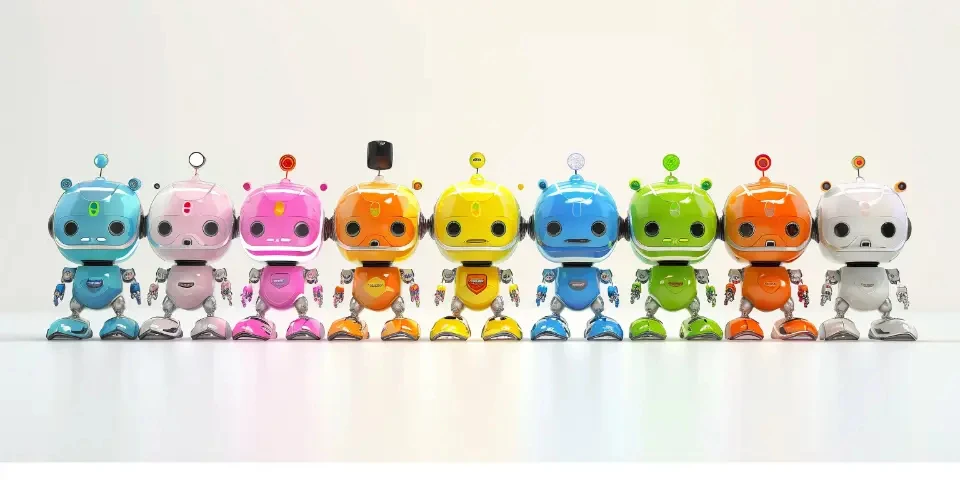Empathy is a powerful emotion that connects individuals on a deeper level. It allows us to understand and share the feelings of others, fostering human connections. In recent years, the concept of empathy has extended beyond human interactions to the realm of technology, particularly in the form of AI character chats. These virtual assistants and chatbots are designed to engage users in conversations that mimic human empathy. In this article, we will explore the role of creators in designing empathetic character AI chats and how they can enhance user experience.
The Need for Empathy in Character AI Chats
Character AI chats are becoming increasingly prevalent in various applications, ranging from customer service to mental health support. However, without a touch of empathy, these AI chats can feel impersonal and detached. Users often seek emotional support and connection, and empathy is the key to establishing a meaningful interaction. Through empathetic character AI chats, users can feel understood and cared for, increasing their trust and satisfaction with the technology.

Building an Empathetic Personality
Creating an empathetic character AI chat requires careful considerations. The personality of the AI chat should be designed to exhibit traits that are naturally associated with empathy, such as kindness, compassion, and active listening. It should also be adaptable to different user emotions and respond accordingly. The creators must develop a deep understanding of human emotions and psychological nuances to ensure the AI chat can effectively empathize with users.
Utilizing Natural Language Processing
Natural Language Processing (NLP) techniques play a vital role in designing empathetic character AI chats. Through NLP, AI chats can analyze and comprehend user sentiments, emotions, and underlying meanings in their conversation. By deciphering the nuances of language, AI chats can offer more personalized and empathetic responses, helping users feel understood and supported.
Ethical Considerations
As creators design empathetic character AI chats, ethical considerations are paramount. AI should never manipulate or exploit users' emotions for any malicious purposes. It is crucial to establish clear boundaries and guidelines for these AI chats to ensure they prioritize user well-being and mental health. Ethical frameworks and regulations should be in place to prevent AI-powered chats from crossing ethical boundaries.
Continuous Learning and Improvement
Empathetic character AI chats should not be static but rather continuously learn and improve their empathetic abilities. It is essential for creators to implement machine learning algorithms that can adapt and evolve based on user feedback. By analyzing the effectiveness of conversations and detecting areas for improvement, AI chats can enhance their empathy, making interactions more meaningful and authentic.
The Limitations of Empathetic AI Chats
While empathetic character AI chats offer numerous benefits, there are limitations to their empathy. AI is still far from replicating genuine human emotions and experiences. The understanding of complex emotions, cultural differences, and context-specific empathy remains a challenge for AI. Creators should be transparent about the capabilities of their AI chats, managing user expectations to avoid disappointment or false perceptions of genuine empathy.
Applying Empathetic AI Chats in Mental Health Support
One area where empathetic AI chats have immense potential is in mental health support. An empathetic character AI chat can provide a listening ear, emotional support, and coping strategies to individuals struggling with mental health issues. By supplementing therapy sessions or providing assistance in between, these AI chats can make mental health support more accessible and destigmatized.
Empathetic AI Chats vs. Human Interaction
Although empathetic AI chats can provide a certain level of support, they cannot replace the genuine connection forged through human interaction. Human empathy is deeply rooted in shared experiences and emotions, which AI chats cannot fully comprehend. However, AI chats can be beneficial in scenarios where human support is not readily available or as a complementary tool to help individuals navigate their emotions before seeking professional help.
Frequently Asked Questions
1. Can empathetic character AI chats be programmed to have a sense of humor?
Yes, creators can program AI chats with a sense of humor. Humor can help establish a more friendly and relatable interaction, enhancing the overall user experience.
2. How can creators ensure that AI chats understand and respond appropriately to cultural differences?
Creators should invest in diverse data sets and extensively test their AI chats across various cultures to ensure cultural sensitivity and appropriate responses.
3. Can AI chats detect and provide support for individuals experiencing extreme emotional distress?
While AI chats can detect signs of distress, they are not a substitute for immediate professional help in emergency situations. Users should be encouraged to seek appropriate assistance when needed.
References
1. Hoffman, G., & Ju, W. (2020). "Designing Artificial Intelligence for Emotional Support Across Cultures." ACM Transactions on Interactive Intelligent Systems (TiiS), 10(3), 1-32.
2. Duffy, B. R., & Sajjadi, K. (2019). "The Design, Perception, and Roles of Empathy in Conversational Agents." arXiv preprint arXiv:1908.10512.
3. Gray, K., & Wegner, D. M. (2013). "Feeling robots and human zombies: Mind perception and the uncanny valley." Cognition, 125(1), 125-130.






